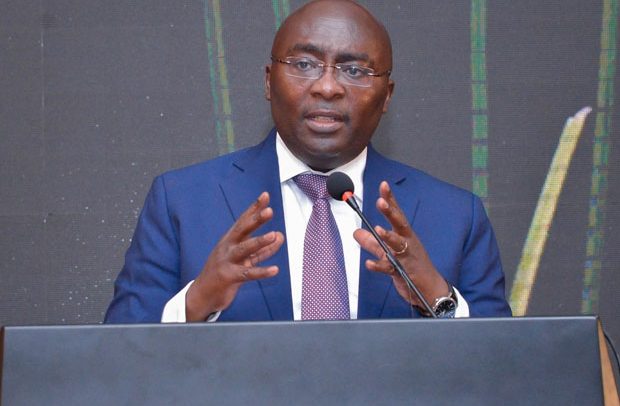Vice President Dr. Mahamudu Bawumia
THE FIRST consignment of government’s ‘Oil For Gold’ deal arrived yesterday at the Tema Port from Dubai, DAILY GUIDE has learnt.
The Bulk Oil Storage and Transportation (BOST) Company is the lead broker of the project, supported by GOIL and other oil marketing companies.
The preliminary consignment, which consists of 40,000 metric tons of oil, is expected to be increased subsequently.
Ghana currently has a monthly oil consumption requirement of 180,000 metric tons of oil.
Government recently announced its plans to buy oil products with gold rather than the United States’ dollar reserves.
In November, last year, it would be recalled Vice President Mahamudu Bawumia said that the move was meant to tackle the dwindling foreign currency reserves coupled with the demand for dollars by oil importers, which was weakening the local cedi and increasing living costs.
The decision, billed to begin this first quarter of 2023, he said “will fundamentally change our balance of payments and significantly reduce the persistent depreciation of our currency.”
He added that using gold would prevent the exchange rate from directly impacting fuel or utility prices as domestic sellers would no longer need foreign exchange to import oil products.
Ghana’s Gross International Reserves stood at around US$6.6 billion at the end of September 2022, equating to less than three months of imports cover.
The figure was down from around $9.7 billion at the end of last year, according to the government.
“The barter of gold for oil represents a major structural change,” Dr. Bawumia emphasised.
Like Nigeria, Ghana produces crude oil but it has relied on imports for refined oil products since its only refinery shut down after an explosion in 2017.
Although countries sometimes trade oil for other goods or commodities, barter deals of such nature often involve an oil-producing nation receiving non-oil goods.
The new move comes amid plans by government to contain the economic challenges being faced by the country.
Earlier last year, Finance Minister Ken Ofori-Atta announced measures to cut spending and boost revenues in a bid to tackle a spiraling debt crisis.
So, this has come in handy as the cedi, in October last year, became the worst performing currency in the world after it lost 45.1 per cent of its value to the United States’ dollar.

